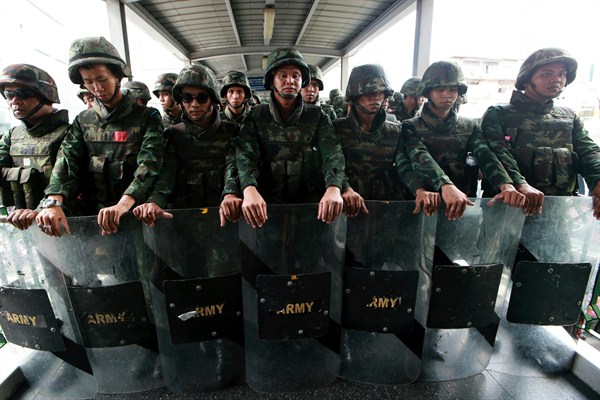Editor’s note: This article is part of an ongoing WPR series about China’s One Belt, One Road infrastructure initiative, also known as the Silk Road Economic Belt and the 21st Century Maritime Silk Road.
Three years after the coup that brought the junta led by Gen. Prayuth Chan-och to power in Thailand, China remains a staunch ally, declining to weigh in on Thailand’s domestic affairs. In an email interview, Pavin Chachavalpongpun, associate professor of political science at Kyoto University’s Center for Southeast Asian Studies, describes the bilateral relationship as well as the role Thailand might play in China’s One Belt, One Road initiative.
WPR: How have relations between Thailand and China evolved in recent years, and what are the main areas of cooperation?

